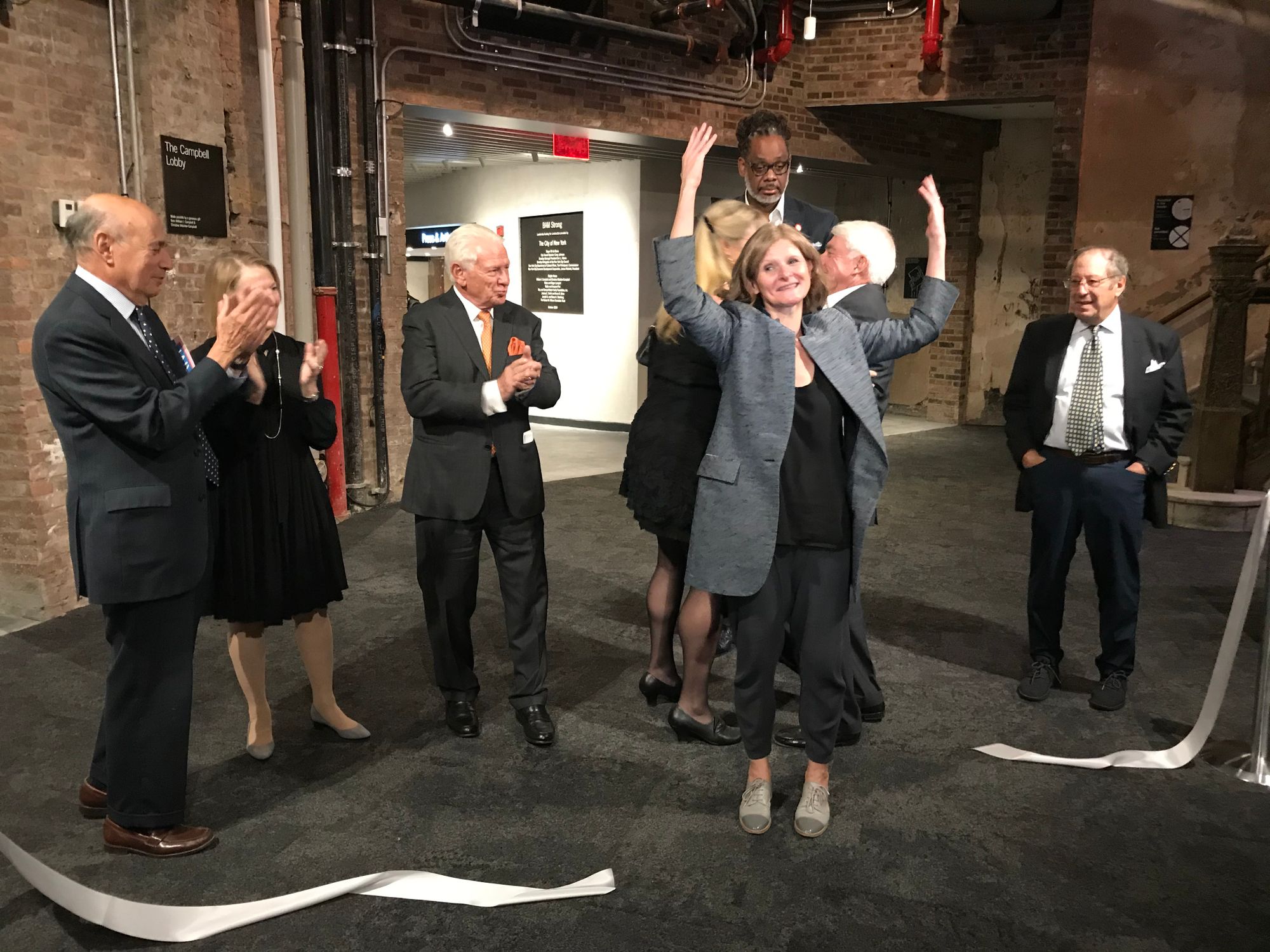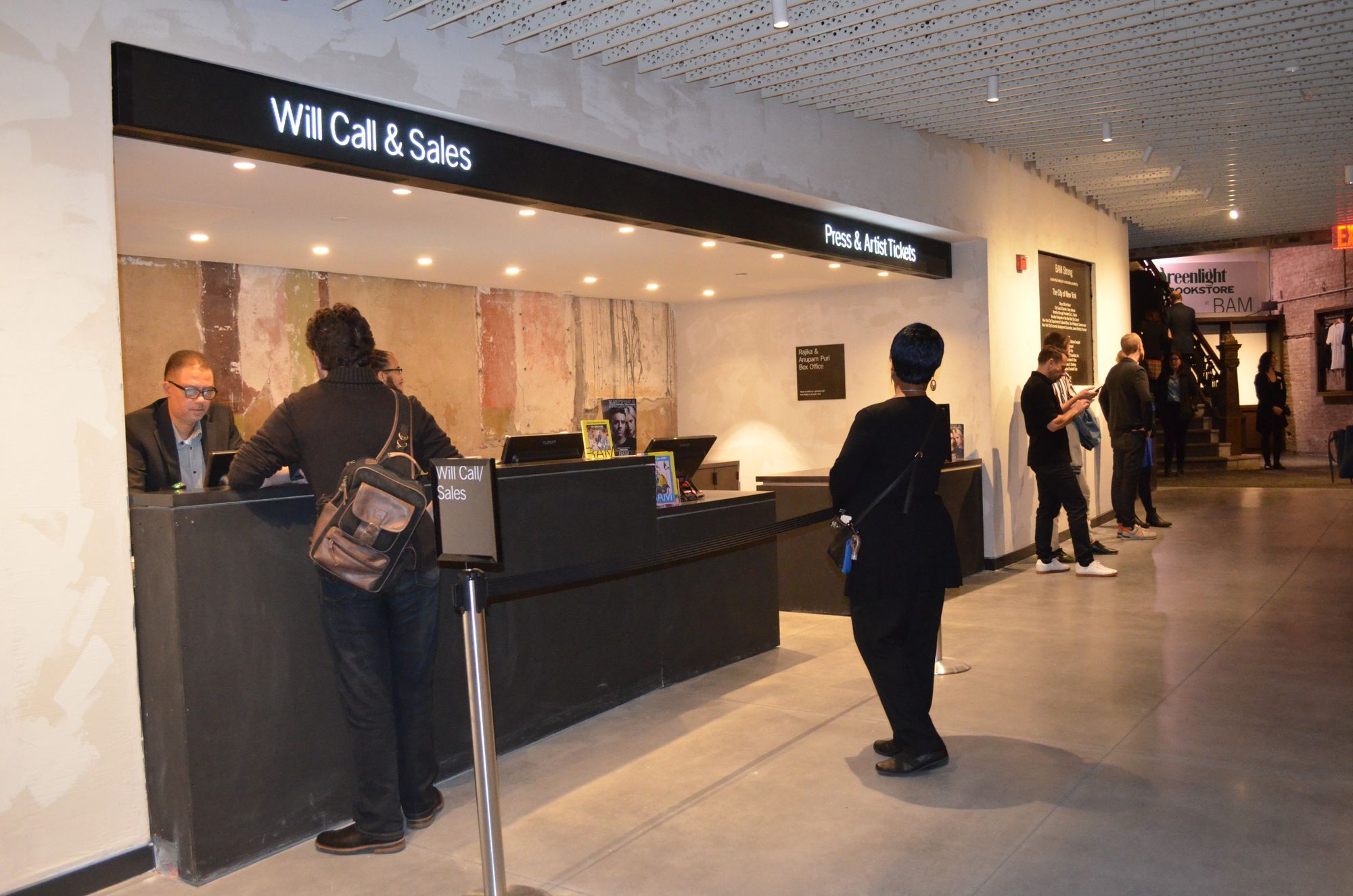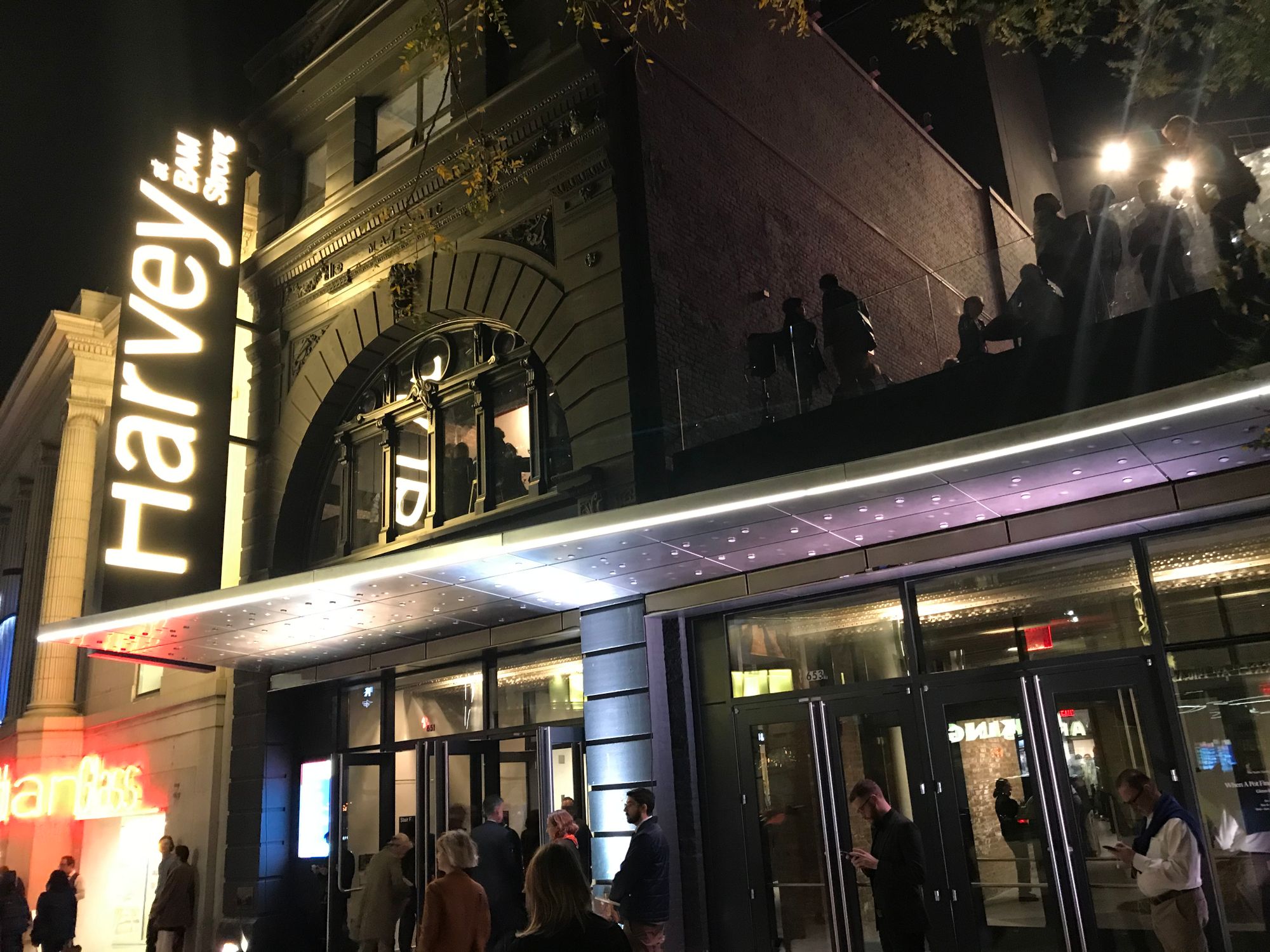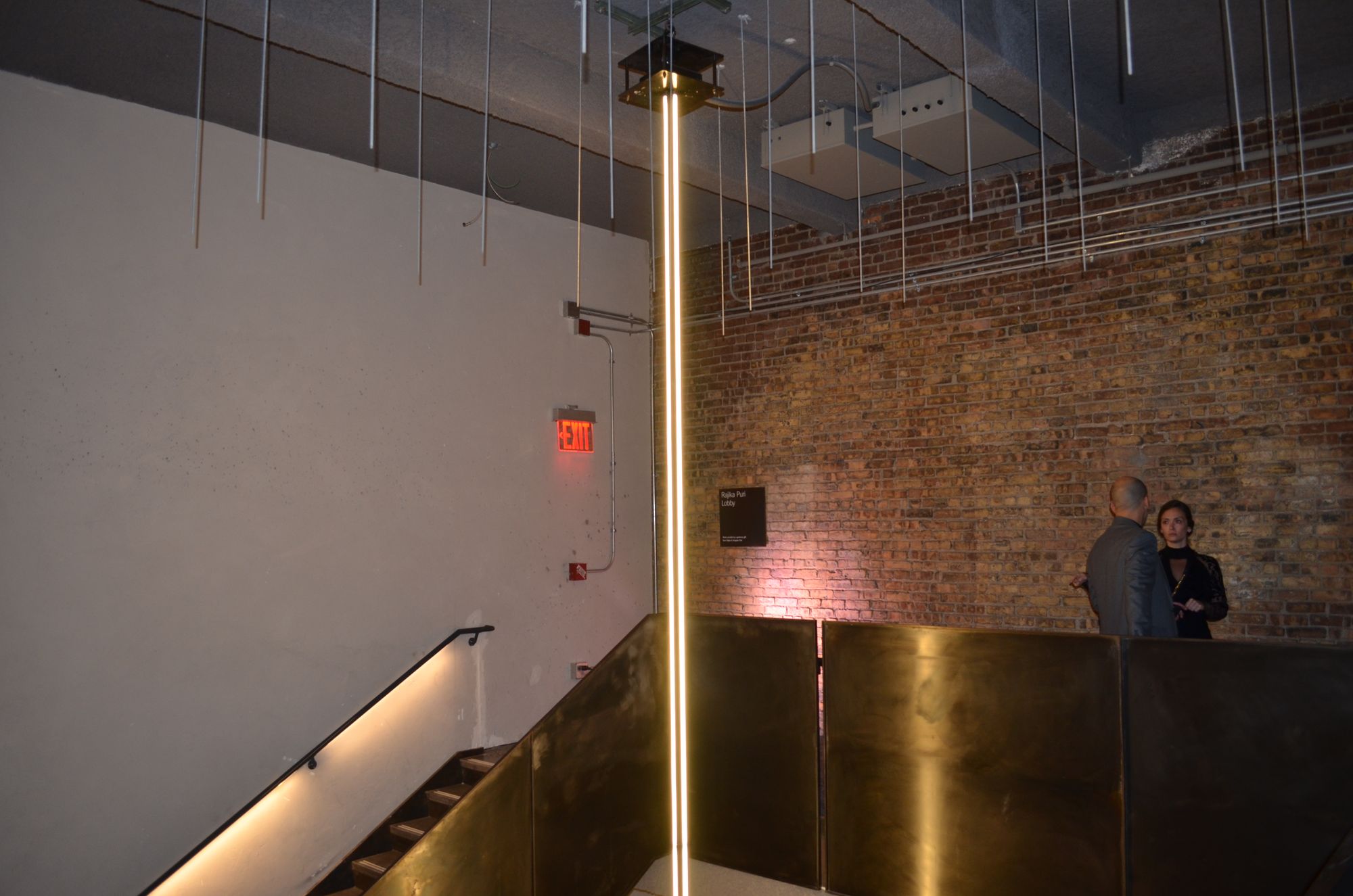Brooklyn Academy of Music Opens BAM Strong And 2019 Next Wave Festival


FORT GREENE – BAM had lots to celebrate Tuesday evening—reopening the renovated Harvey Theater, the grand opening of its new visual arts space, and the kick off to the latest Next Wave Festival, the first curated by new Artistic Director David Binder.
“Thank you for joining us at the official opening of BAM Strong,” BAM President Katy Clark said to the room filled with elected officials and BAM supporters. She recalled her second day at the institution in August 2015, in which she attended a five-hour design meeting regarding the BAM Strong project.

BAM Strong unites BAM venues along Fulton Street and enables growth, building improvements, and greater accessibility. BAM Strong includes the creation of The Rudin Family Gallery, the Robert W. Wilson Sculpture Terrace, a new elevator to the balcony level of the BAM Harvey Theater, and a ground-level space at 230 Ashland Place.
“I sat here with people who love this space and this theater with all of their hearts, and three things emerged very, very clearly to me,” Clark reflected. “Firstly, we wanted our many audiences to have a better experience in this space,” she said, which included adding an elevator for accessibility to the balcony where the most affordable seats are located, a more spacious lobby featuring a user-friendly box office and service kiosks, and a grand staircase.

Secondly, Clark continued, “we wanted to create distinctive, accessible and creative shopfront spaces along Fulton,” noting the newly built 1,100-square-foot Rudin Family Gallery and the Robert W. Wilson Sculpture Terrace which provide dedicated space for BAM’s visual arts program.
“Finally, we wanted to honor the spirt of the original renovation of this beloved theater. We wanted to marry the old and the new,” she said.

Formerly the Majestic Theater, the BAM Harvey Theater debuted in 1987. The venue was renamed to honor BAM’s longtime President and Executive Producer, Harvey Lichtenstein, when he retired in 1999.
“BAM Strong today is a decade in the making, taking the incredible roots of the Majestic and the Harvey and adding so much more access, convenience, and sheer beauty,” said BAM Board Vice Chair, William Campbell.
“Think of Harvey in 1987 with Peter Brook climbing over debris, looking through a window to imagine that a long abandoned and derelict movie palace could be converted into such a gem of a performance space,” BAM Trustee Edgar Lampert mused.
“This is such a special opportunity for me and really a full-circle experience,” NYC Council Majority Leader Laurie Cumbo stated. “I remember as a young person, considering myself a whippersnapper in all of this, and meeting with Harvey Lichtenstein and really hearing his vision for what the BAM Cultural District could be. How it was going to bring our communities together and how all of these spaces that were under-utilized were going to be revitalized and were going to be the signature of Brooklyn, New York. Many people thought he was crazy at that time, that it couldn’t be done.”

Following the ribbon cutting, guests were invited to tour the spaces before the curtain went up for Swan Lake/Loch na hEala, the opening night performance of the Next Wave Festival. “The greatest thing about something like tonight is we’re not only opening the spaces but it’s also the opening of the festival,” Clark told Bklyner. “We’re putting on a show. That’s what we do. That’s what we do best. That’s what we love to do, and now we can do it in spaces that are even more welcoming and accessible than before.”
Along with the dedicated visual art gallery, which allows BAM to contribute to the streetscape of the cultural district, Clark said one of her favorite parts of the Harvey Theater renovation is the “beautiful vertical chandelier” created by BAM’s lighting design team. The stairwell encircles the dramatic lighting piece which spans two levels.

Overseeing the BAM Strong project through the years was Jonathan Jones, Director of Capital Projects for BAM. “It was phased, partly due to money, partly due to the production schedule,” he said of the lengthy project. “It’s very hard for BAM to shut down the Harvey for 18 months,” he explained. He recalled construction beginning in 2012, with improvements to the orchestra, followed by work on the balcony in 2015, then foundation work in 2016. The final phase of the project, including the accessibility upgrades and building the art gallery on an empty lot next to the Harvey, started in 2018.

The renovations also include a Patron’s Lounge on the second floor of the Harvey Theater which features a floor-to-ceiling semi-circular window overlooking Fulton Street which was refurbished and brought up to modern standards. An undulating illuminated canopy that will link BAM’s three Fulton Street properties—the Harvey Theater, The Rudin Family Gallery, and 230 Ashland Place—is still under construction and is expected to be completed by the start of the new year, according to Jones.
One of Jones’ favorite new features is the staircase that leads up to an extension built on the original roof for a balcony-level lobby. The new space exposes original interior and exterior brick walls. “The stair and just the materiality of it—I really love the black and steel against the grey plaster with the moments of the past where there are old walls, old plaster,” he said.

Atop the art gallery, the Robert W. Wilson Sculpture Terrace will showcase public art. A large-scale sculpture by Brooklyn-based artist Teresita Fernández will be permanently displayed and is scheduled to be installed some time next spring, according to Jones. “It’s meant to be seen, obviously from the terrace, but also from the street level. Its design is based on being able to see it from various vantage points,” he noted.

For the inaugural exhibit downstairs in The Rudin Family Gallery, curator Larry Ossei-Mensah selected When A Pot Finds Its Purpose, a work by artist Glenn Kaino. “The artwork consists of two cast bells in the process and form of the original Liberty Bell construction,” the Los Angeles-based artist said. “One on a palette tipped over from which several cubic yards of regenerative soil spills out into the gallery space in an imaginary landscape….”
Inspired by Bishop T.D. Jakes, the work explores “repotting,” a conceptual framework to allow individuals to reach their full potential, according to the exhibit notes. “The tools of our democracy, when they were planted…they were seedlings in a pot,” Kaino explained. “A plant in a pot doesn’t know it’s outgrown its pot until it’s too late, until the soil and all the roots are impacted. So I had this inspiration of what it means to really be set free…thinking about how our sovereignty is maintained and what we can do to challenge the old systems—which were created for justifiable reasons—but perhaps are out of date.”
When A Pot Finds Its Purpose will be on view until December 15. Kaino will return to Brooklyn for an opening reception for the exhibit on November 6.
Learn more at bam.org.
BAM Strong
651 Fulton Street




